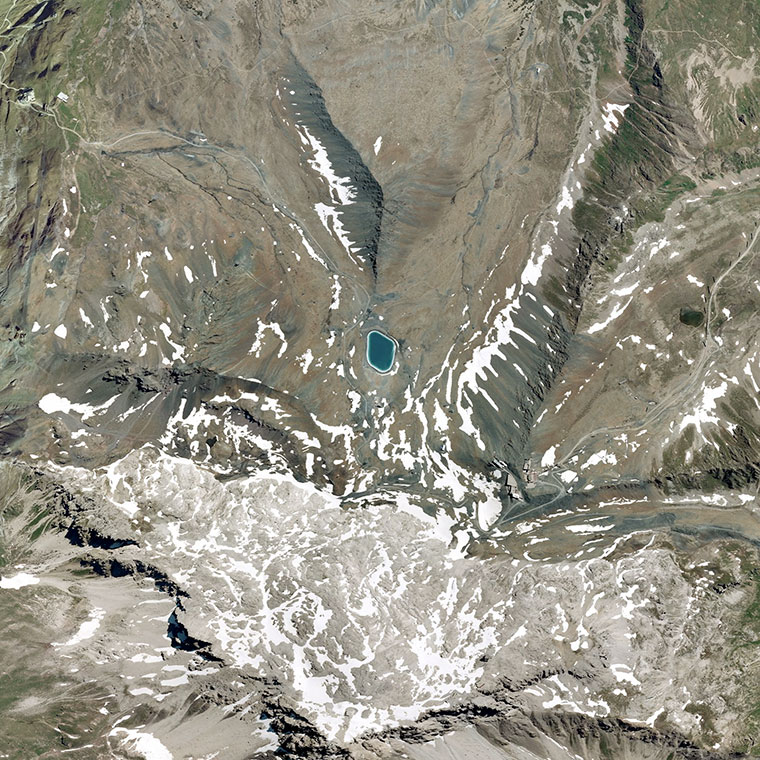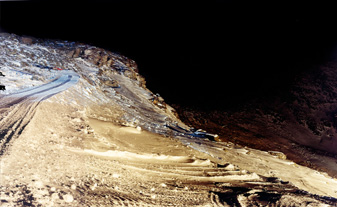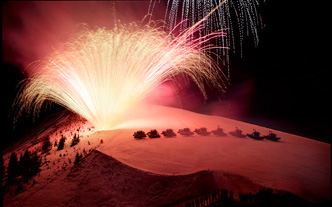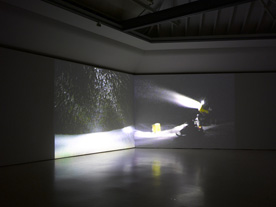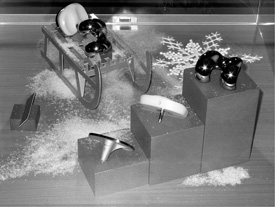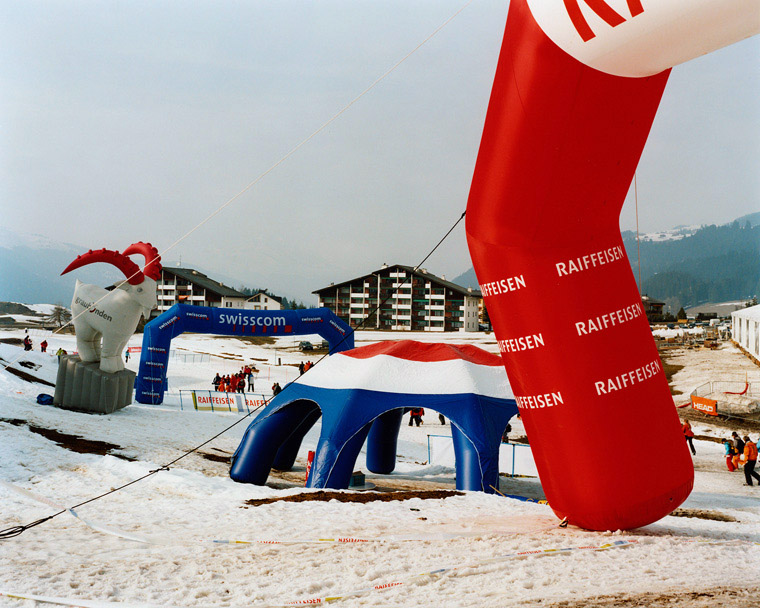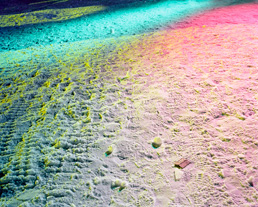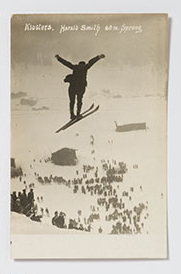Snow Management Complex 2001–09
Since the 18th century, the Swiss Alps have been considered the epitome of sublime nature, and natives of the Alps have missed no opportunity to capitalize on that myth. Over the past two centuries, the relatively untouched mountains have been transformed into a high-tech event landscape geared towards maximum profit. But today the first challenge for the wintersport industrie is to survive, then find out how to proceed: Now that the promise of eternal snow through technology turns out to be a cul-de-sac, a dead-end road, due to effects of globalwarming and exploding costs. In SNOW MANAGEMENT, Spinatsch offers very different perspectives. It begins with pictures of ski slopes being prepared at night. Under the glare of cold floodlights, machines noisily turn nature into a tourist experience with snow cannons at full blast and bulldozers flattening the slopes. There are no mountains to be discovered in these nightscapes. Instead the pictures evoke the cold emptiness of stills from a science fiction film about a barren planet being made habitable. The spectacle of nature in the Alps is no different from soccer games and summit meetings; it, too, is a staged production. This oeuvre makes manifest that technology, staging, and mediatization have become the basics of contemporary life and it gives us the opportunity to take a look backstage at the makings of “reality.” Jules Spinatsch always remains matter-of-fact and unsentimental, prompted neither by nostalgia nor cultural pessimism. His dry understatement lends the work a clarity and farsightedness that is far more oppressive than many detailed apocalyptic visions.
(Martin Jaeggi, in Parkett No. 81)